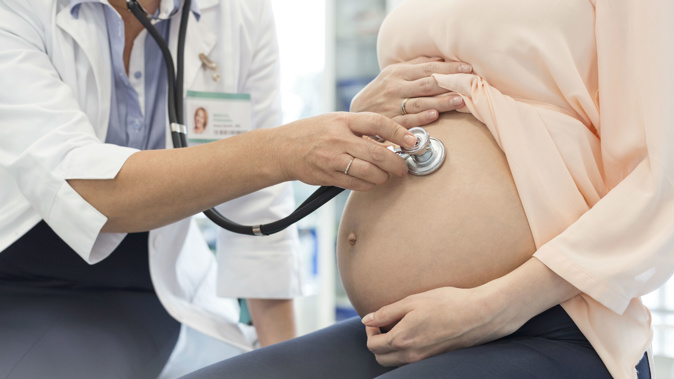
A heavily pregnant woman scheduled to be induced was twice turned away by Auckland Hospital because of a bed shortage, prompting an apology from hospital bosses.
The woman's case comes amid a spike in demand for expectant mothers needing urgent birthing services at the hospital.
The pregnant woman, who declined to be interviewed, was at full term - 40 weeks' gestation - and was booked in to be induced when she arrived at hospital and was sent home.
At a rescheduled appointment she was sent home again and placed under monitoring.
An Auckland District Health Board spokeswoman said there had been no change to the capacity of its maternity services.
"However, this week we have experienced a spike in demand, particularly from women needing urgent hospital birthing services."
The DHB activated its standard response, which involved rescheduling on the basis of clinical need.
"This means some appointments were rescheduled for women who could safely be deferred, to prioritise patients requiring acute or urgent care.
"We apologise to all women whose appointments have been deferred to enable us to provide safe care, and thank them for their understanding."
The spokeswoman said strike action taken this week by midwives and junior doctors had added complication to its scheduling, but extensive contingency planning had ensured the safety of patients.
New Zealand College of Midwives chief executive Alison Eddy said the sector was under increasing strain because of a midwifery shortage nationally.
"Wider Auckland city is struggling with recruitment and midwives are choosing not to work full hours because of the pay and conditions, which is partly what the strike was about.
"That could possibly be impacting on the services that they can provide, because they need to make sure they can provide services safely."
Eddy said post-date pregnancy inductions were not necessarily urgent.
"If mother and baby are well, a day or two delay is not a clinical concern. So they are obviously prioritising their work and making sure they're providing the care to women that have got vulnerable pregnancies or medical complications that need more urgent care."
She said a tertiary hospital delivery suite was similar to an emergency department in that it could not predict the number of patients presenting.
For example, a woman might go into premature labour or suffer emergency complications.
"Generally in the labour ward you'll have a certain number of women booked in for a post-date induction each day and that really is often around availability of beds."
While a delay could be a major inconvenience for women, urgent cases had to be prioritised and Eddy said being delayed was not an unusual situation.
"I completely understand why women get distressed because they had a plan, and they're over being pregnant so it's probably quite a stressful event being told 'don't come today, come tomorrow', but really the DHBs are working within the resources they've got."
Midwifery staffing had been a problem across Auckland's three district health boards - Auckland, Waitemāta and Counties Manukau - for some time, Eddy said.
"That's what we've been working with the Ministry of Health to try and address through trying to improve the working conditions so that it supports better retention and recruitment of midwives."
She said the issue was national but it was worse in Auckland because the cost of living was so much higher.
More than 1100 district health board-employed midwives held rolling strikes last week and in November to be able to negotiate separate pay and working conditions from nurses.
DHBs are currently in negotiations with the midwives' union Meras (Midwifery Employment Representation and Advisory Service) and an offer is expected to be formalised soon.
Take your Radio, Podcasts and Music with you









